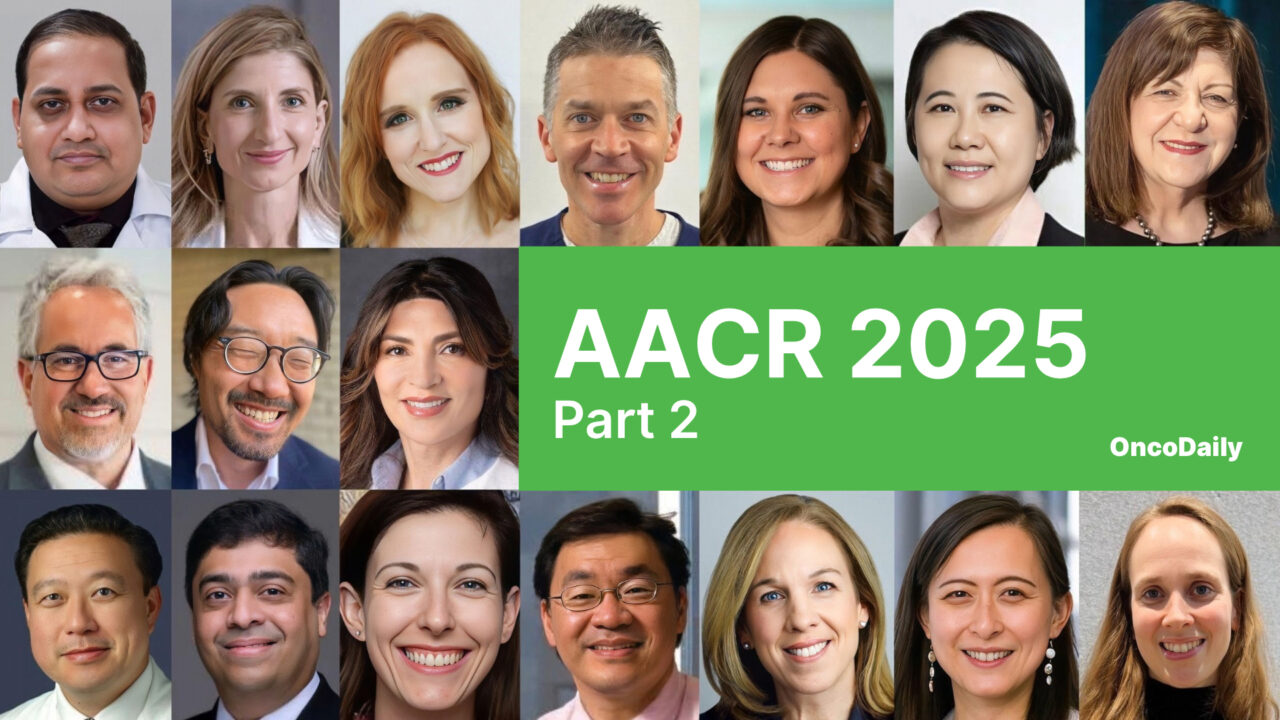The AACR Annual Meeting is one of the biggest events in the world of cancer research—bringing together experts, clinicians, and advocates from across the globe to share their latest breakthroughs and ideas. The AACR 2025 meeting is no exception, and it’s been filled with incredible insights, inspiring stories, and cutting-edge research that are sure to shape the future of oncology.
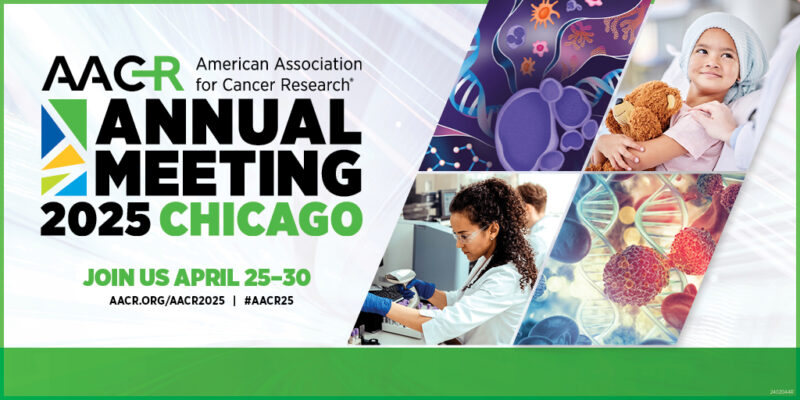
If you’re like us, you’ve been eagerly following the latest developments and breakthroughs shared during the event. From impactful research findings to powerful award lectures, there’s so much to take in. To help you navigate the excitement, we’ve compiled a list of posts you absolutely can’t miss. These highlights are packed with valuable takeaways that will keep you informed and inspired about the future of cancer care.
So grab your coffee (or your favorite go-to drink), and let’s dive into the top moments from AACR25!
“As I begin my term as AACR President, I thank Pat LoRusso for her inspired leadership over the past year. I look forward to working with the entire cancer community to advance our shared mission.”
“In a plenary session at the 2025 American Association for Cancer Research’s Annual Meeting, MSK gastrointestinal medical oncologist Dr. Yelena Janjigian shared new results from a clinical trial which found that a simple blood test can help doctors identify which patients are most likely to benefit from immunotherapy after cancer surgery to remove tumors — potentially preventing the disease from coming back.
The phase 1 trial focused on patients whose tumors had a specific genetic feature called mismatch repair deficiency (MMRd). This abnormality makes it harder for cells to fix mistakes in their DNA. It also makes the tumors more likely to respond to immunotherapy.
In this trial, patients had their MMRd tumors surgically removed and then underwent a blood test known as a liquid biopsy. This test looks for tiny fragments of tumor DNA — known as circulating tumor DNA or ctDNA — that may still be present in the bloodstream after surgery.
“This is the first time we’ve shown that finding ctDNA after surgery — and acting on it quickly — can actually prevent cancer from coming back,” said Dr. Janjigian. “The results exceeded our expectations and highlight how ctDNA can guide smarter, more personalized cancer care.”
Learn more about this research.”

“Excited to meet with Yogesh Jethava our new Director of the Transplant & Cellular Therapy Program (TCT) at Advocate Lutheran General Hospital a key part of our Cancer National Service Line of Advocate Health!
A vision of expanding world class cancer care and the academic learning health system of Wake Forest University School of Medicine”
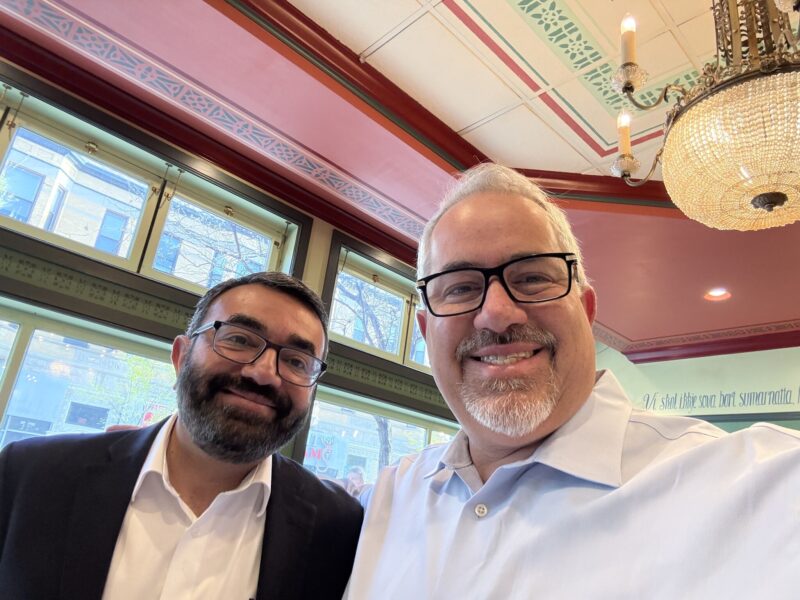
“Occasionally, a study comes along that changes a cornerstone of traditional patient care forever. This is one of those studies.
About 15% of colorectal cancers are mismatch repair–deficient (dMMR), a biomarker that has been steadily reshaping the treatment landscape over the past few years. Furthermore, virtually all colorectal cancers in patients with Lynch syndrome—an important inherited cause of CRC—are dMMR.
Traditionally, early-stage dMMR colorectal cancers have been treated with surgical resection, long considered essential for cure.
Previous work—including the 2022 study by Andrea Cercek and Luis Diaz (NEJM 2022) showing nonoperative management of dMMR rectal cancer with PD-1 blockade, and the 2024 neoadjuvant immunotherapy trials in dMMR colon cancer led by Myriam Chalabi’s team (NEJM2024)—suggested that in some cases, surgery might safely be avoided.
That possibility has now been confirmed.
In this groundbreaking new phase 2 trial (NEJM 2025), researchers at Memorial Sloan Kettering Cancer Center and partner sites asked: Could neoadjuvant PD-1 blockade cure early-stage dMMR solid tumours, without surgery?
117 patients with stage I–III dMMR tumors—including rectal, colon, hepatobiliary, urothelial, and others—received dostarlimab (a PD-1 inhibitor) every three weeks for six months.
No surgery. No chemotherapy. No radiation. Just immunotherapy upfront.
Patients who achieved a clinical complete response could elect nonoperative management, avoiding surgery.
The results were extraordinary:
82% of patients achieved a clinical complete response and avoided surgery.
92% were recurrence-free at two years.
Minimal toxicity (mostly mild, reversible side effects).
No patient lost the opportunity for surgical cure if needed.
Follow-up studies will be important, but this trial changes discussions in surgical and medical oncology offices all around the world—today.
For dMMR tumours, dostarlimab becomes first-line management, with surgery reserved for a small minority.
Congratulations to the whole team led by Luis Diaz and Andrea Cercek- to the scientists, clinicians, and patients that made this happen! This is the beginning of an exciting new era for dMMR cancers, Lynch syndrome and CRC management more broadly.”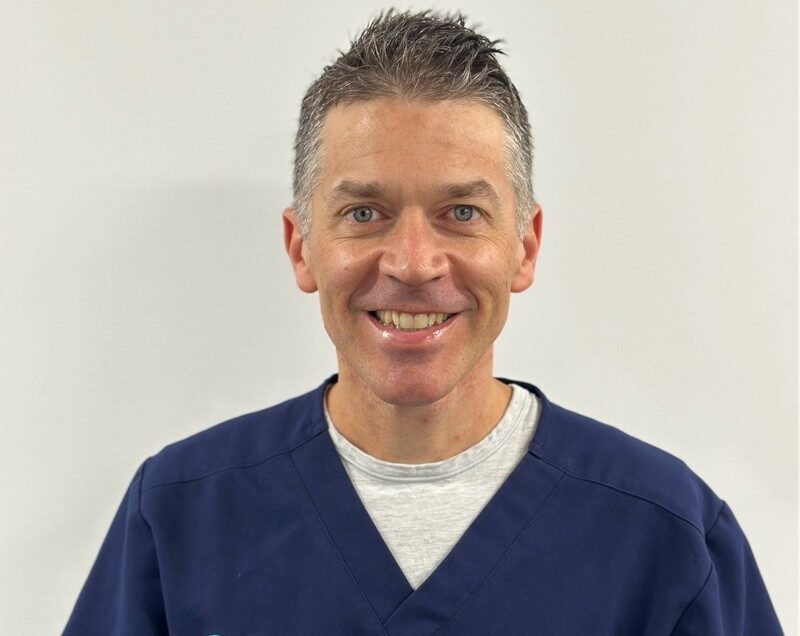
“Immunotherapy (IO) in Non-Metastatic Head and Neck Cancer: A Turning Point?
Until now, IO struggled to find success in non-metastatic HNSCC:
JAVELIN Head and Neck 100 (avelumab + CRT) — failed to improve PFS
KEYNOTE-412 (pembrolizumab + CRT) — failed to improve EFS
But at AACR25, we witnessed a probable gamechanger
KEYNOTE-689 (perioperative pembrolizumab) met its primary endpoint, demonstrating significant improvement in Event-Free Survival (EFS)!
What was different about KEYNOTE-689?
(And why did it succeed while others failed?)
- Neoadjuvant immunotherapy: 2 cycles of pembrolizumab before surgery to prime the immune system.
- Surgical debulking: Major tumor burden removed before adjuvant therapy, creating a more favorable tumor microenvironment.
- Adjuvant pembrolizumab + radiotherapy: IO intelligently combined with postoperative RT, rather than during heavy CRT upfront.
- Perioperative IO strategy: IO before and after surgery — not just during CRT — leading to more sustained immune activation.
- Biomarker guidance: Enrichment based on PD-L1 CPS ≥10 in major pathological response (mPR) analysis.
- Key Clinical Lessons:
Timing matters — IO around surgery can be more effective than during concurrent CRT. Biology matters — Tumor microenvironment post-surgery may be more “immune hot”. Strategy matters — Smarter trial designs are changing the game.
And the story is just beginning!
At ASCO25, the community awaits results from the Nivolumab post-operative trial —
bringing more questions than answers about the best IO timing and combinations in HNSCC!
Incredible times for head and neck oncology research!”
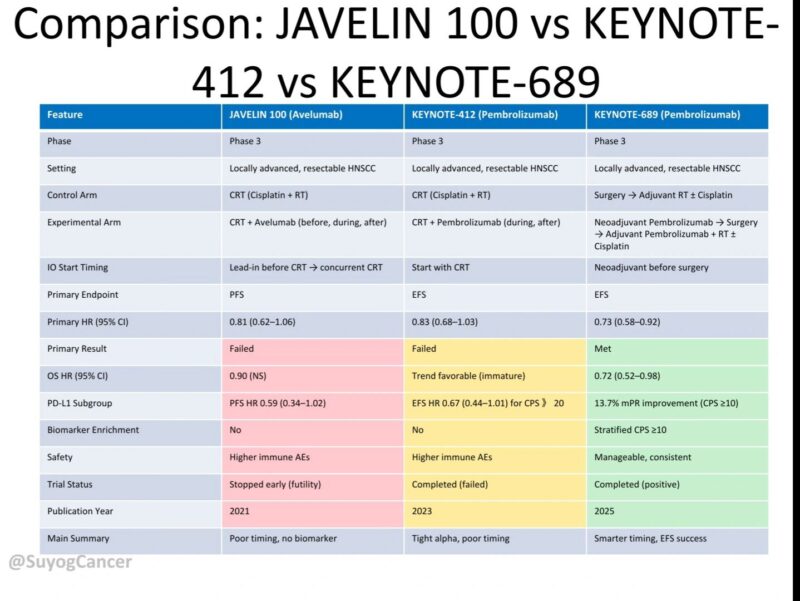
“Piro Lito and Sandra Misale with Frank McCormick! The Godfather of RAS and the future Godfather and Godmother of RAS.”
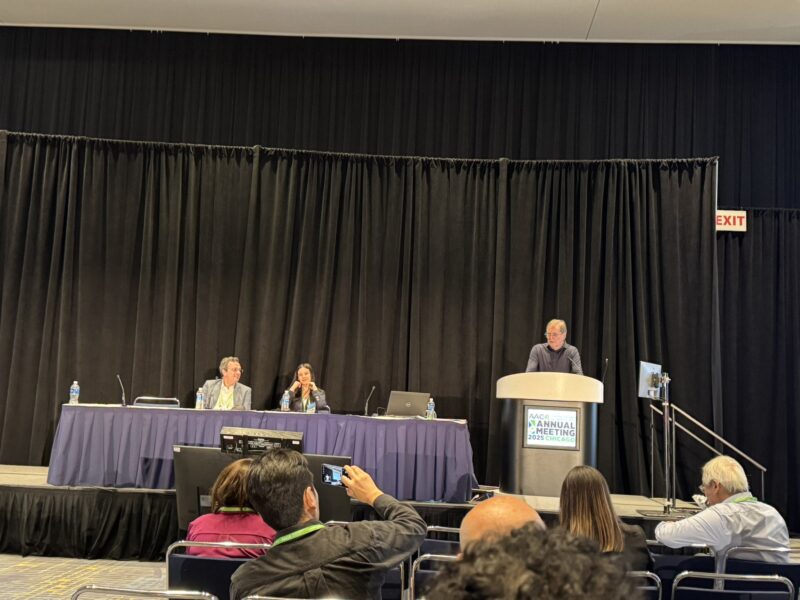
“Four years ago Dr. Hernandez was visiting me on rounds after a stage IV dx at 29 led to Hail Mary of a surgery to give me a shot at a future. Fast forward a few years and we’ve upgraded to him visiting me at my poster instead, at AACR25.”
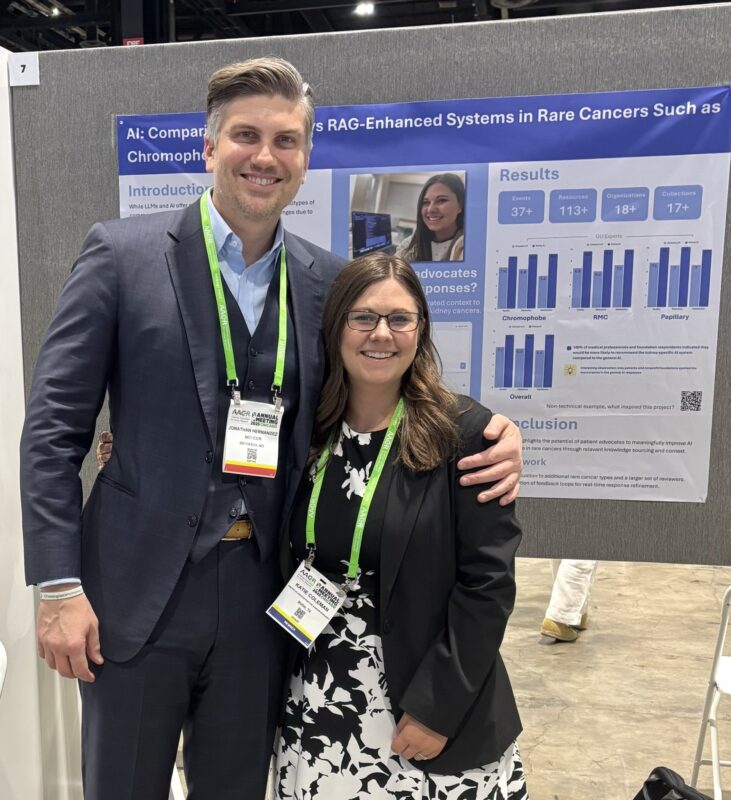
“Exciting Late Breaking Abstract at AACR25 by Bill Gmeiner investigator at Atrium Health Wake Forest Baptist Comprehensive Cancer Center on CF10 a molecule he developed with potential to expand options for Colorectal Cancer.”
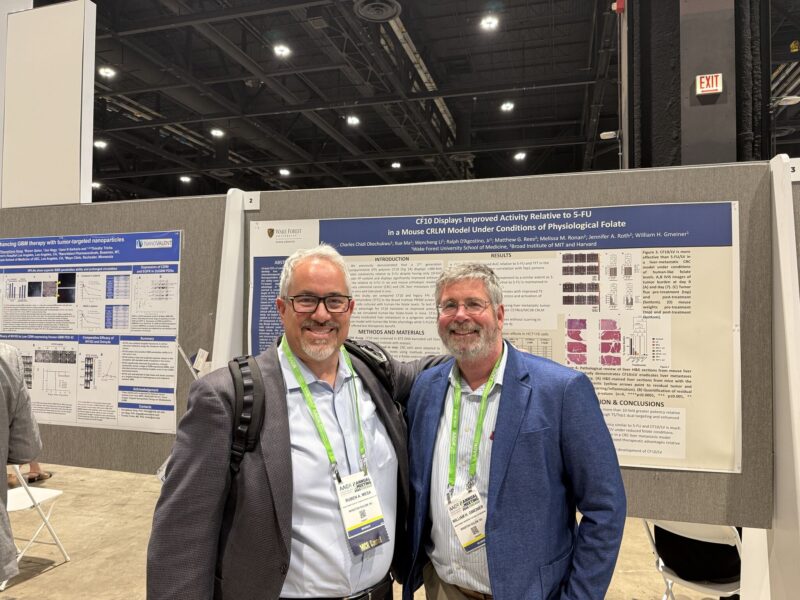
“Congratulations to Alexander Biederstädt, on an outstanding presentation AACR25, showcasing a novel platform for genome-wide CRISPR screening in primary human CAR NK cells. So proud of your achievements and excited to watch your continued impact in the field.”
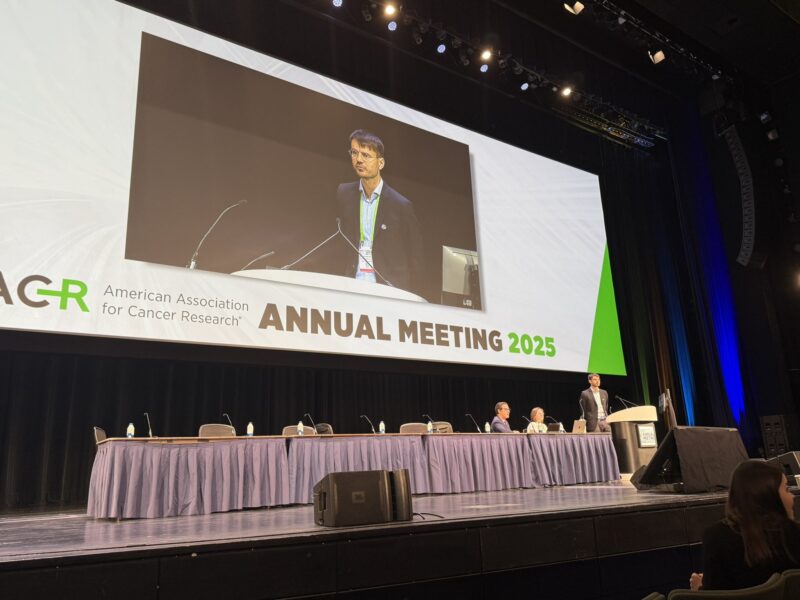
“Thanks, Jill Feldman, for reminding us living longer doesn’t mean living better! With new treatments, pts with advanced lung cancer are living longer. How to balance treatment decisions with quantity vs. quality of life?
Measuring what matters is IMP -> Survivorship matters!”
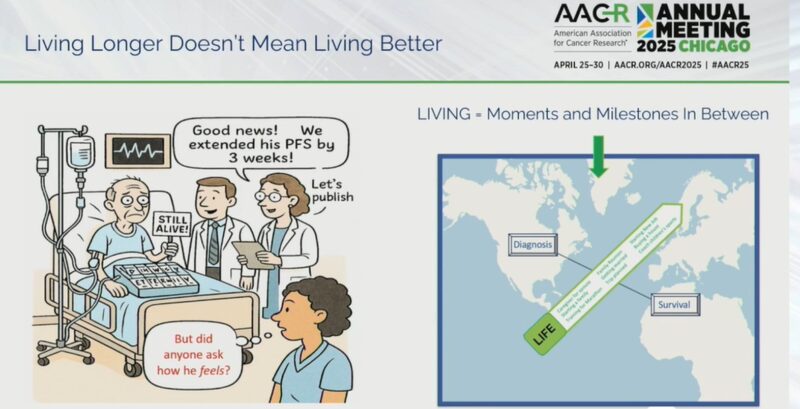
“Grateful to chair such an impactful clinical trials plenary at #AACR25 with Everett Vokes – love seeing all the rapid progress in lung cancer treatments and discussing with friends like Tina Cascone and Ramaswamy Govindan.”
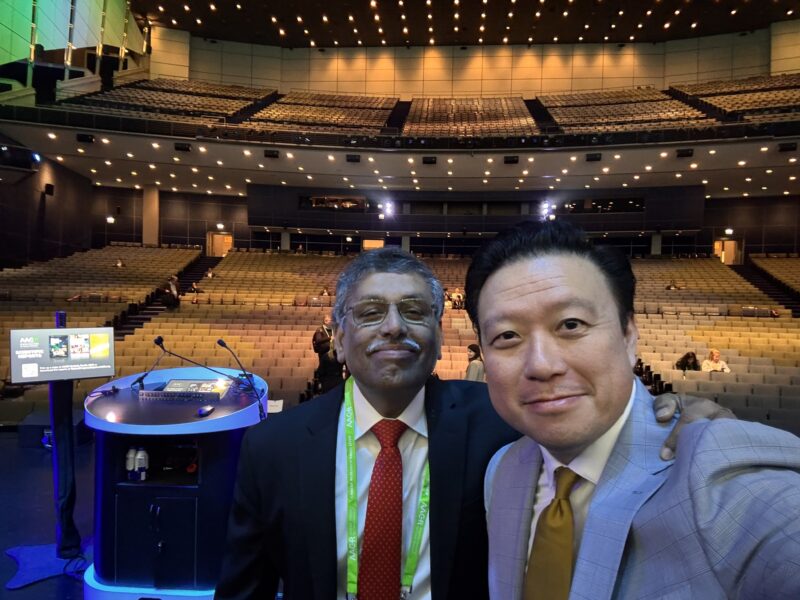
“It was a pleasure to see everyone at the Korean Researchers Networking Night at AACR25. There are more than 700 scientists from South Korea attending the AACR Annual Meeting—the largest representation from any country outside the U.S.—and we are thrilled to welcome them.”
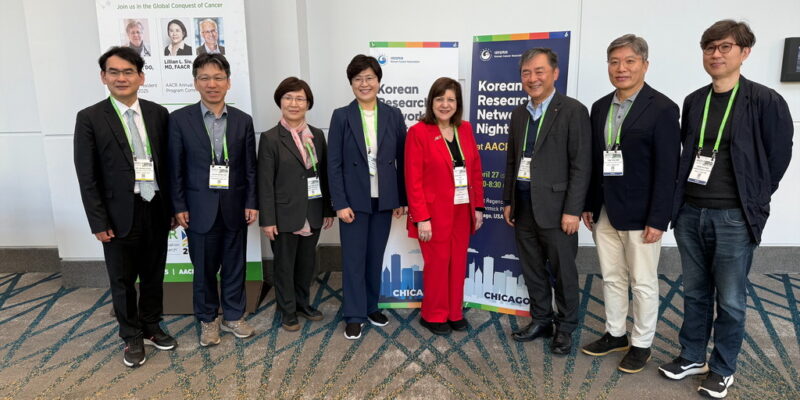
“Doug Hanahan enjoying the AACR Journals Cancer Hallmarks collection at AACR25! Read the collection online.”
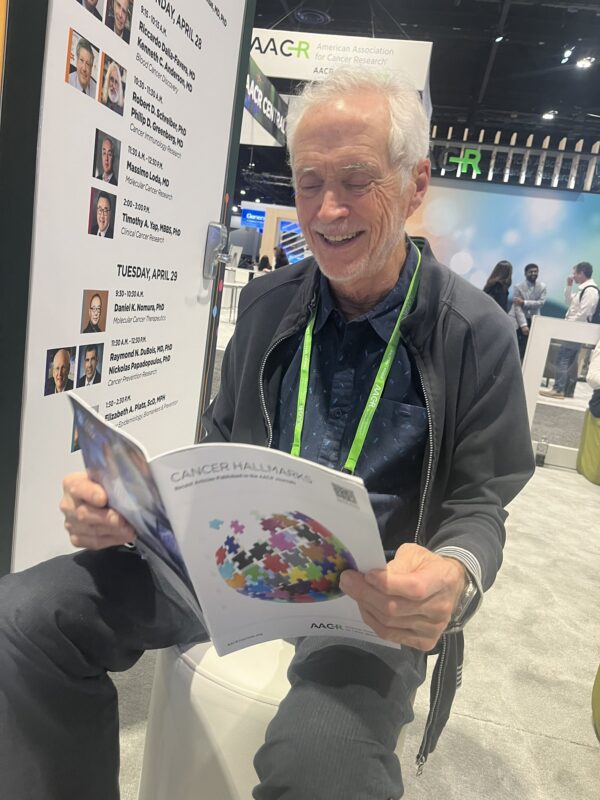
“Such a delight to get together with the ESMO2025 Scientific Chairs -the amazing, Toni Choueiri, the terrific Myriam Chalabi & track
chair Marleen Kok Lab.”
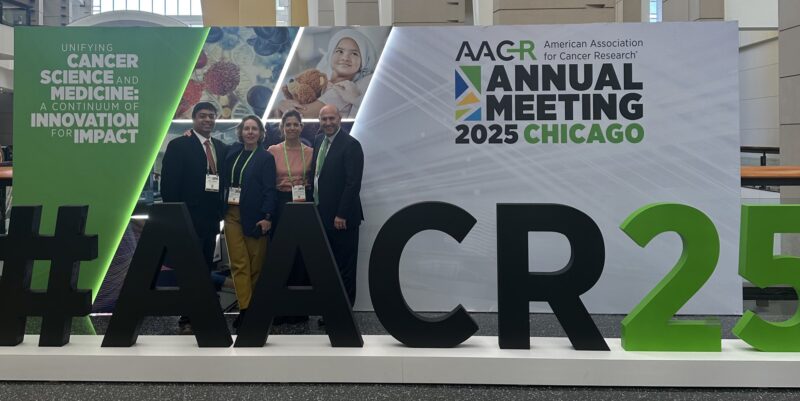
Applause to the passionate Roswell Park trainees, faculty and alumni who shared new findings and deep insights at AACR25 today – you exemplify innovation for impact!
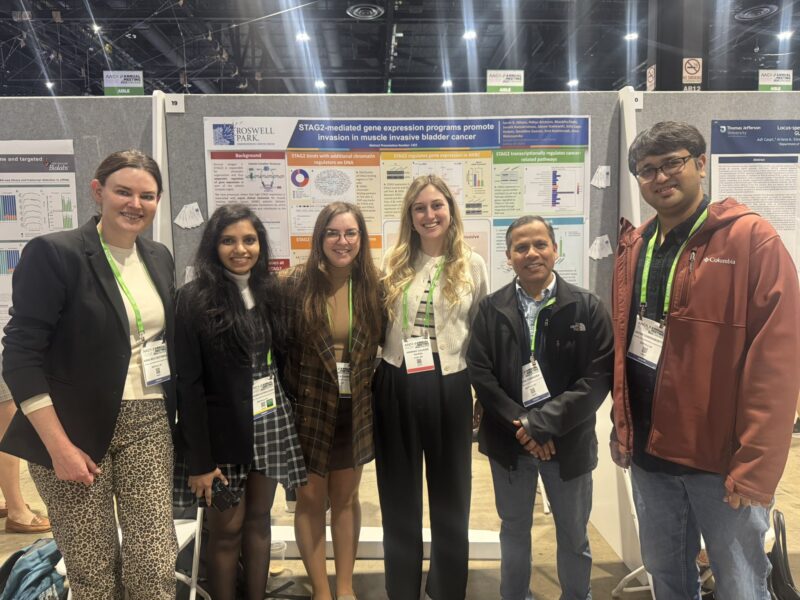
“Follow me to the DOGS Wellness lounge pet therapy. Love it! And apparently many other people do to! These K9 friends received a ton of love today from the AACR community! They will be back tomorrow!
PS: I have two loves in life.”
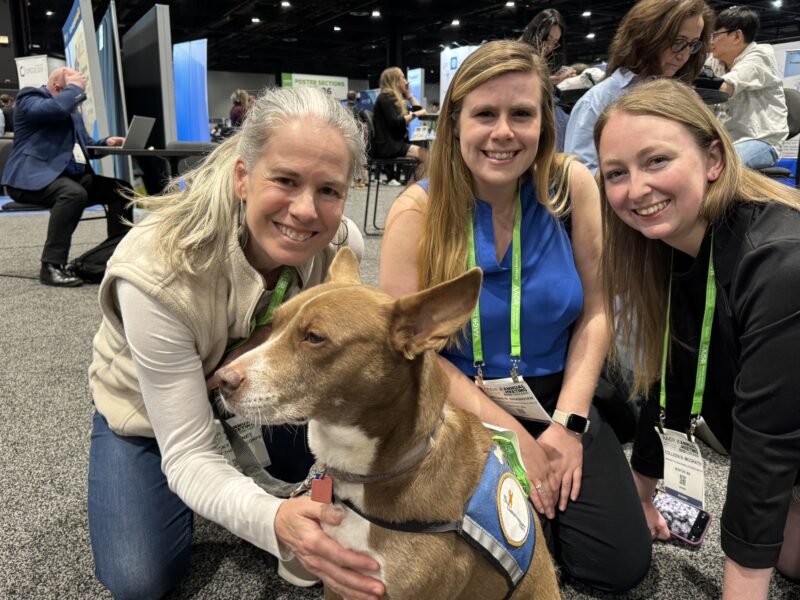
“So good to see Sandra Demaria at the AACR annual meeting! Dr. Demaria is the incoming President of Society for Immunotherapy of Cancer!”
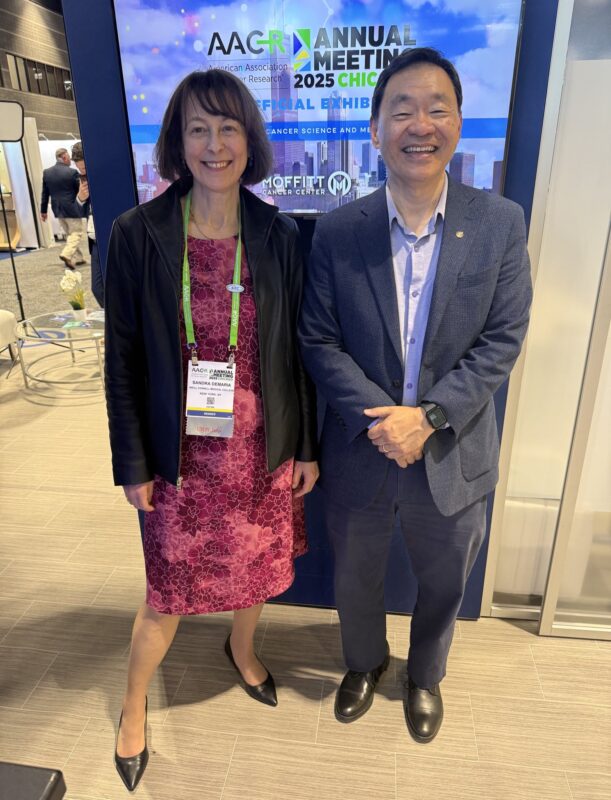
“When the “coldest” tumors melt: Myriam Chalabi breaks new ground (again) at AACR25.
NEOASIS Trial:
• 80% MPR in dMMR (70% pCR!)
• 60% MPR in pMMR BOT/BAL are pushing ICB into non-immunogenic tumors.”
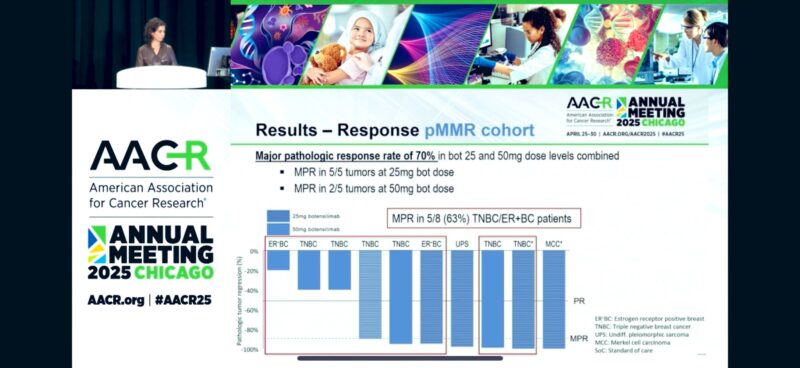
Memorial Sloan Kettering Cancer Center
“Congratulations to medical oncology fellow Stefanie Gerstberger, for receiving the AACR Women in Cancer Research Scholar Award!
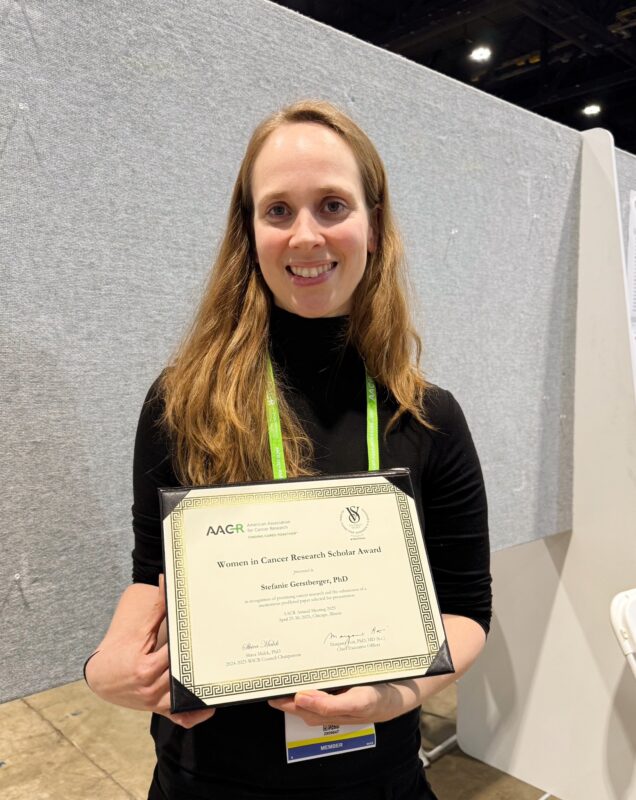
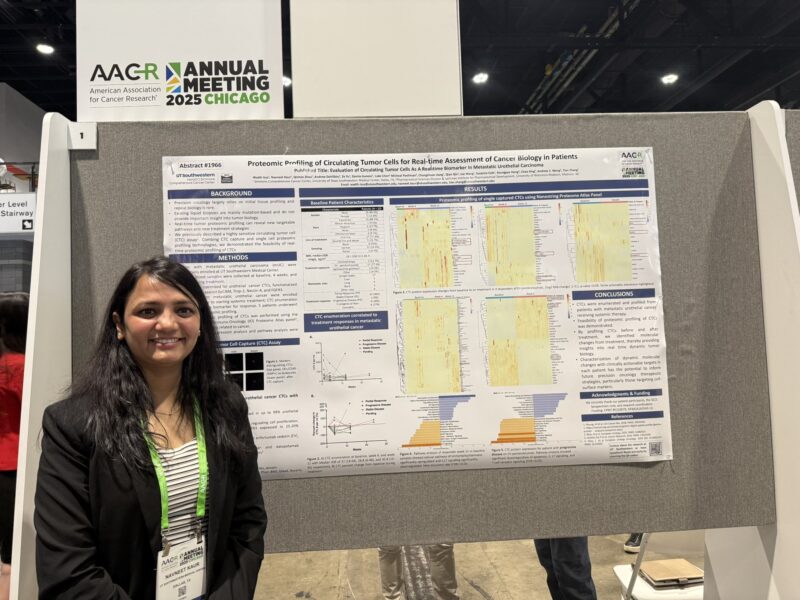
The AACR 2025 meeting is full of incredible breakthroughs, and there’s so much more to discover. Keep the conversation going, share this post, and let’s continue pushing the boundaries of cancer research together.
For more insights and updates, don’t forget to follow OncoDaily! Stay tuned for what’s next!
By: Md Foorquan Hashmi, MD, Sr. Editor, OncoDaily: India Bureau


